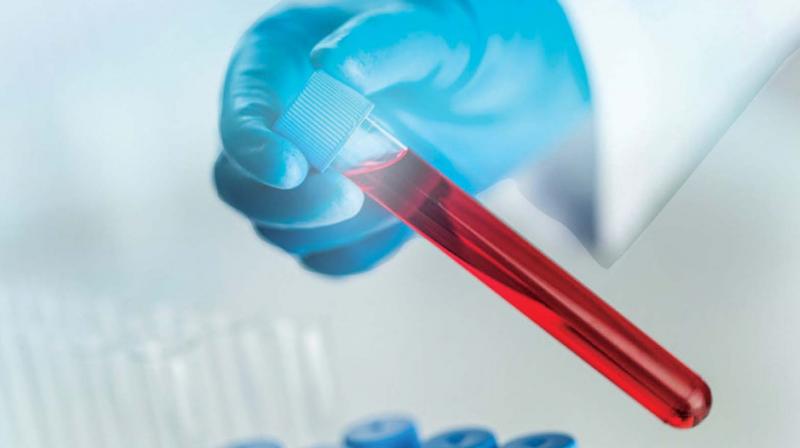Liquid biopsy a game changer in cancer testing
Most cancers have multiple genetic mutations which differ in various parts of the cancer.

Chennai: Precision medicine has dramatically transformed the field of oncology as it introduced the patient- tailored therapies which helped in measured outcomes. Now, Liquid Biopsy is a revolutionary and comprehensive technique that is opening previously unexpected perspectives, says Dadasaheb Akolkar.
Important advances in cancer treatment have been made in recent years and a liquid biopsy is a simple and blood-based alternative to surgical biopsy, which allows a doctor to discover a range of information about the tumors through a simple blood sample.
Mr Akolkar, who is director, research & innovation at Datar Cancer Genetics asserts it's a non-invasive blood-based investigation that detects the Circulating Tumour Cells (CTCs) and cancer derives bio-markers with high precision, specificity and reliability. Tissue biopsy may still be the gold standard but liquid biopsies are playing an increasingly important role in cancer diagnostics.
Circulating tumour cells, circulating tumour DNA and other blood-based markers are increasingly being used to make either diagnostic or prognostic statements. He goes on to explain that liquid biopsy consists of the detection and isolation of circulating tumor cells, circulating tumor DNA and exosomes. It detects cancer cells and their fragments with ultra-high precision, specificity and reliability. The test lets doctors check for cancerous cell / cancer cell fragments to monitor recurrence of the disease or to keep an eye on changes in the tumor characteristics, as often as necessary, without the risk of radiation from scans, hospitalisation, anesthesia or painful surgical biopsies.
Research on liquid biopsy had initially focused on lung, prostate and breast cancers and later the blood-based methodology has been found useful in the detection of almost all solid organ tumours. The procedure used in liquid biopsy is much simpler to endure and is quicker than the surgical biopsy.
Most cancers have multiple genetic mutations which differ in various parts of the cancer. The tissue samples which are removed from biopsy may have issues of tumour heterogeneity, but liquid biopsies offer an improved and detailed chance of detecting these genetic changes. It can also detect molecular signs of drug resistance which will help modify therapy in real-time.
The method enables real-time monitoring of the disease and the effectiveness of therapy. It is possible to do successive liquid biopsies to monitor the disease and recurrence or changes in tumour characteristics, as it is a question of a simple blood draw. Cancer as a disease is not static, it evolves and liquid biopsies can also be used to by the clinician to design/ modify treatment strategy in a timely manner.
The tests have the added advantage of providing molecular information about the cancer, which can change during and after treatment. It utilises multi co-ordinate and multi-dimensional probes to hunt down the tiniest of fragments of cells / DNA / RNA released by cancer cells in the patient's blood. It's suitable for any cancer patient.
The method is based on gene interrogation for all types of cancers. It can eliminate the need for repetitive, costly, inaccessible and painful biopsies and is an excellent and reliable test to determine the presence, recurrence and therapy response of malignancy in suspected or under treatment cancer patients.

